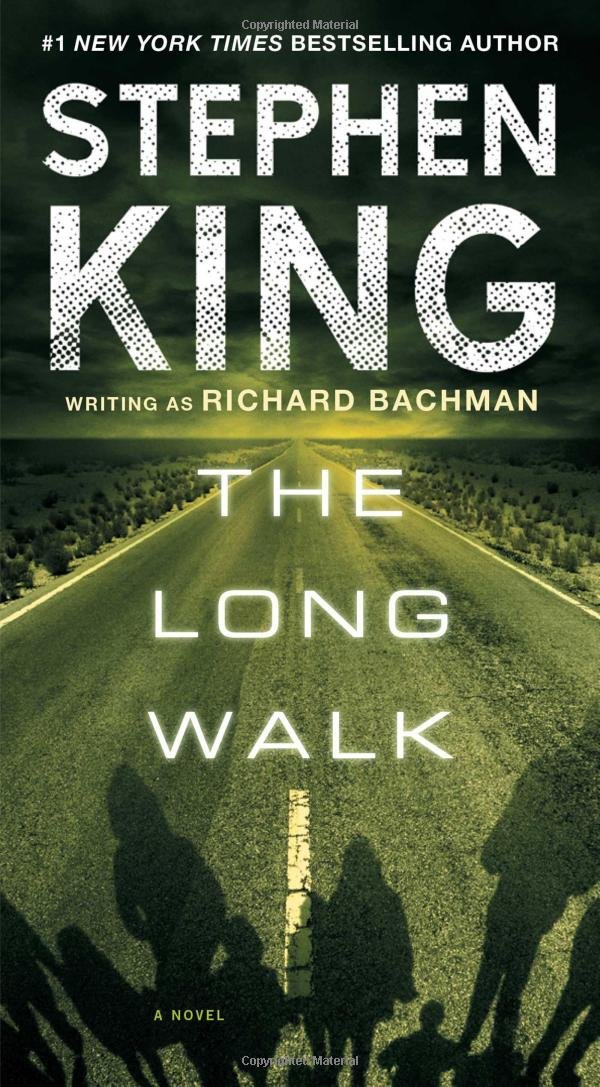The act of reading is truly a sublime experience – a gateway to myriad realms woven through words. Among the plethora of literary treasures, *The Long Walk*, penned by the masterful Richard Bachman—a pseudonym for the illustrious Stephen King—captures the essence of dystopian fiction and explores the depths of human endurance and desperation. This novel, balancing intrigue and philosophical contemplation, is a haunting yet compelling journey that invites readers to reflect on the darker aspects of society and individual psychology.
Set in a bleak future where societal norms have shifted, *The Long Walk* presents an unfathomable competition: a group of one hundred boys sets out on a journey, forced to walk continuously without stopping. The rules are simple, yet chilling: if any participant slows down to a walk below a certain speed, they receive a warning. Three warnings lead to execution, typically delivered with a shocking precision that underlines the novel’s grim reality. This ruthless premise immediately grips the reader’s attention, propelling them into a world filled with high stakes and moral ambiguity.
What can readers expect from this harrowing literary expedition? First and foremost, an exploration of the human spirit amidst adversity emerges as a dominant theme. Each character, uniquely crafted, becomes a vessel through which the reader experiences courage, fear, camaraderie, and betrayal. The protagonist, Ray, serves as the reader’s anchor, presenting an exquisitely nuanced perspective on life, relationships, and the innate desire for freedom. Through Ray’s eyes, one witnesses the potency of hope juxtaposed against despair, revealing the complexities of choice and sacrifice.
The profundity of *The Long Walk* goes beyond surface-level entertainment. It poses existential questions that provoke contemplation. What defines the will to survive? Is the relentless pursuit of life worth sacrificing one’s humanity? As the intensity of the competition escalates, so does the character development, encapsulating the raw emotional landscape navigated by the boys. Readers will find themselves captured not only by the narrative’s urgency but also by the philosophical conundrums it raises.
Moreover, the novel adeptly critiques societal structures and norms. Bachman intricately layers the narrative, inviting critiques of authority, consumerism, and the moral decay lurking beneath the veneer of civility. It deftly raises an eyebrow at the societal impulse to reduce humanity to mere statistics and entertainment. The competition the boys face eerily parallels contemporary realities, urging readers to reflect on their own lives and the societal constructs that govern them, albeit in less overtly sinister ways.
However, it is not merely the plot or themes that enchant readers; the style itself plays a vital role. Bachman’s prose is visceral and evocative. His ability to harness descriptive language allows readers to visualize the harrowing conditions of the Long Walk. With imagery that conjures feelings of exhaustion, exhilaration, and existential dread, each scene immerses readers further into the psychological turmoil faced by the characters. The pacing is meticulous, crafting tension that escalates with each step taken by the walkers, engendering a sense of urgency that mirrors the story’s relentless progression.
As the narrative unfolds, Bachman crafts moments of unexpected tenderness amidst the brutality. Interactions between the boys foster poignant connections; they serve as a reminder of the importance of empathy and solidarity, even in moments of utter despair. These relationships add depth, allowing readers to become deeply invested in the fates of the characters. The cultivation of these bonds not only enhances character development but also elevates the emotional stakes of the narrative.
For readers drawn to character-driven stories, *The Long Walk* is indeed a treasure trove. Each boy’s backstory, motivations, and aspirations are unveiled gradually, weaving together a rich tapestry of humanity. This depth draws readers into an intricate narrative as they root for—or against—characters based on individual experiences and reactions to the quintessence of life and death. The relationships the boys form become pivotal; they emphasize the unpredictable ways that camaraderie can shape one’s resolve.
Notoriously, Bachman also illustrates the psychological deterioration that accompanies extreme circumstances. The gradual decline of the boys, marked by exhaustion and despair, invites readers into an introspective analysis of the human psyche. As physical limitations begin to erode, the mental struggles intensify, expanding upon themes of fear, bravery, and the often-blurry line between survival instinct and madness. This exploration of psychological depth enables a riveting narrative arc that keeps readers on the edge of their seats, even as they find themselves grappling with philosophical quandaries and emotional currents.
In conclusion, *The Long Walk* is not simply a novel about survival in a dystopian world; it is an intricate examination of what it means to be human. From the harrowing competition itself to the rich character studies and deep thematic explorations, readers are treated to an experience that resonates long after the final page has been turned. This masterpiece, filled with Stephen King’s characteristic suspense and rich psychological insight, challenges readers to confront their values, fears, and desires amidst the backdrop of a meticulous narrative. Embrace the walk—and may it ignite the flights of introspection that lie dormant within.
